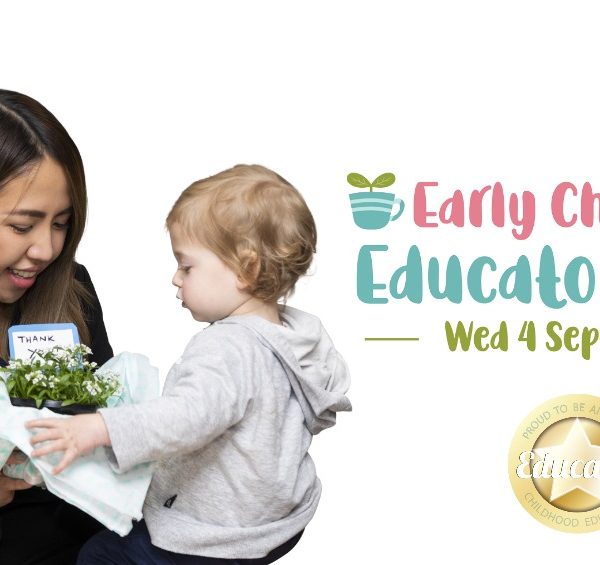Enhancing relationships through gratitude in the early childhood context
opinion
The views expressed by contributors are their own and not the view of The Sector.

Research at all levels of education highlights the fact that flourishing relationships are at the core of effective teaching and learning, and thriving communities.
They are also fundamental to mental and emotional wellbeing. How relationships are addressed in the early years is going to greatly influence children at each stage of their development.
The relational dimension needs to be conceptualised not only at the level of the teacher and student but also with all those who play a part in a child’s development – directors of education and care services, parents, grandparents, and the wider community.
I argue that we cannot have flourishing relationships without gratitude, which I define briefly here as ‘giving back out of acknowledgement for what we receive, in ways that are not necessarily reciprocal’.
In our research, gratitude is therefore conceptualised not only as what we are grateful for, but how we can express this gratitude in action.
In the midst of our busy lives we often forget to recognise the gifts we receive from each other. Our relationships suffer if we approach them with an intention of what we need to get from another rather than first acknowledging what we are grateful for from them.
Rather than focusing on teaching children to be more grateful, I take the approach that it is the modelling and the inner attitude of the adults in the child’s life that has the greatest impact. This is particularly the case when the child is in their early years, as the formative influence of the adult is stronger at this point than any other.
Although the most important place to start, gratitude research has barely touched the early childhood education context. To bridge this gap, a book club has been initiated with some of the Gowrie Training Tasmania Team. Our process was for the group of eight participants to read chapters of Gratitude in Education: A Radical View (Howells, 2012), and to come together at regular intervals to discuss the relevance of gratitude to early childhood education. We also explored the challenges.
Many wonderful stories of gratitude arose from our group. Participants shared experiences of deepening their joy and commitment to their work through gratitude practices such as recognising children and their parents more fully by thanking them often; and modelling gratitude in the way they teach early childhood educators.
One particular story speaks loudly about the place of gratitude, and was shared by a member of our book club, whom we will call David.
David encountered a family who were struggling with a range of financial and social stresses. Their child had many developmental and behavioural issues, and staff identified that as a child they found difficult to like. This was also mentioned in relation to the child’s parents, who seemed downhearted when they arrived at the centre where they would predictably hear complaints about the difficulties caused by their child’s behaviour that day. They seemed resigned to only hearing bad news.
One day David decided to take a different approach with this family. He looked for what he could be grateful for about this child. When the parents arrived, David made a special effort to go and thank them for what he noticed, for the wonderful attributes he could now see in this child since he consciously changed his perspective. He also decided that he was going to be the first one to approach the parents before others got to them with their complaints.
When David did this over time, he found there was a noticeable difference in the relationship, not only with the family and the centre but also with the way the family interacted with their son. For the first time, gratitude also flowed from these parents to the early childhood service and the other educators.
It is important to note here the distinction between praise and gratitude. David was not just offering positive words to make the other person feel better or to motivate them to behave differently. Inherent to gratitude is the cyclical flow of giving and receiving. It is important that we find this ‘gratitude for’ before we express ‘gratitude to’ in order for it to be experienced as authentic. It is also important that we express gratitude in ways that are meaningful to the other person, not just the way in which we would like to receive it.
David’s expression of gratitude to these parents exemplifies this beautifully. His actions also rotated the giving and receiving cycle from the parents to the early childhood service, which in turn was likely to be returned from the educators back to the parents and from the parents back to the child.
This is the power of gratitude from just one educator’s powerful action. If we turn such actions into ‘gratitude practices’, they have more impact – particularly when
trying to express gratitude towards those who have hurt us, or whom we find negative. The notion of a ‘practice’ means that we are not yet proficient in our gratitude, that we are reflecting on ways in which we can improve. They are actions that we repeat over again until they become part of our character.
David’s gratitude to these parents wasn’t just a simple action. Nor was it a one-off expression of gratitude. He first needed to reflect on what he could be grateful
for, what he appreciated in these people and their child. He then started to greet them with an inner attitude of gratitude. After doing this for a while, he then thanked them for what he appreciated in their child and did this often over time.
Without gratitude, relationships suffer. We know what it feels like not to be thanked in meaningful and authentic ways. We also know how life-giving and motivating it can be when people thank us, and particularly if those people are in a leadership position where we work. Let us not forget simple acts of gratitude in the midst of our busyness and weightiness of high performance objectives.
This article was first shared in Gowrie Australia’s Reflections magazine and has been reshared with publisher permissions. To access the original copy of this article, please see here.
Popular

Workforce
Quality
Practice
Provider
Research
How one teacher is using Little J & Big Cuz to build empathy, understanding and confidence in First Nations learning
2025-12-08 07:15:19
by Fiona Alston

Provider
Workforce
Quality
Fair Work Commission confirms forced resignation grounds in case involving early learning provider
2025-12-08 07:30:23
by Fiona Alston

Workforce
Policy
Quality
Provider
Funding agreement reached on preschools
2025-12-09 08:46:06
by Fiona Alston
















